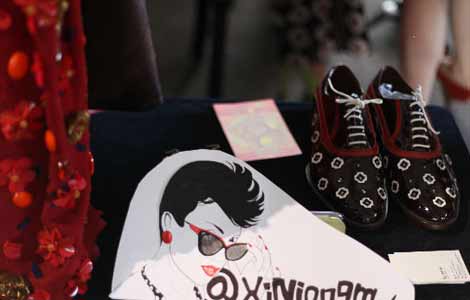Lawyers must not use media to win cases
Updated: 2013-08-29 07:27
By Lin Wei (China Daily)
|
||||||||
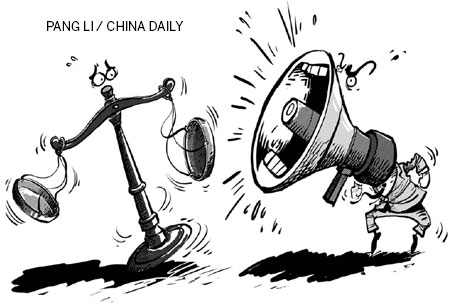
What is the role of a lawyer? The law says a lawyer shall "maintain the legal rights and interests of a client, help enforce the law, and maintain social fairness and justice". Therefore, a lawyer is obliged to analyze facts and interpret related legal matters to his/her client.
But in practice, a lawyer often takes measures -like interacting with the media to save a client from negative publicity - which are not part of his/her professional duties. For instance, in a high-profile gang rape case in Beijing, lawyers of the suspects as well as the victim have used new media to publish unconfirmed details of the case.
The gang rape case has drawn widespread attention because one of the five defendants, surnamed Li, is the son of famous singers. Li, 17, was detained in February on suspicion of raping a woman in a Beijing hotel room along with four accomplices, three of whom are also minors.
Many lawyers seek the moral high ground for their clients, for which they use the media. A lawyer cannot be prevented for publishing details of a case if he/she observes the law. Besides, debates among lawyers help us determine the truth. Everyone is entitled to have his/her own view of a case. But we should take all the evidence into consideration before determining the truth.
In Li's case, however, what his lawyer has done is debatable. Have his comments helped the cause of the defendant?
In some past cases, lawyers' comments have brought them momentary fame but hurt their clients' interests. In the gang rape case, the public debate seems to be on whether Li used coercion, or violence, to have sex with the victim. Other factors such as whether the victim was a sex worker, and whether the night club/hotel ran a prostitution racket could also influence the court's verdict in the case. However, even raping a sex worker is a crime in any country.
Rapes are not rare in China but rarely do they draw so much attention. This case, however, is different because one of the suspects is the son of famous personalities. In such a situation, Li's lawyers and family should respect the sanctity of the judiciary and dispel people's doubts that his family background could influence the court's verdict.
But Li's lawyer (even his parents) has tried to spark a public debate on the issue by his actions and comments. For instance, by saying that the rape victim is a sex worker, the lawyer tried to minimize the severity of the crime.
Li's case has made us think why an increasing number of lawyers and families of defendants are using the media to spin stories. The situation is getting worse as more lawyers indulge in war of words on Internet to win a case instead of collecting evidence to convince the courts. Perhaps some past cases - in which lawyers used outside-the-court gimmicks to put pressure on courts to pass judgments in their favor - are to be blamed for that, especially because some verdicts have been influenced by external pressure, especially those from the media.
Criminal defense lawyers often face a dilemma. Many of them think that by not responding to public anger, they will create a bad impression on the court and thus harm their clients' future. On the other hand, if they influence public opinion by triggering an online debate on a case, they can keep it alive and put pressure on the court.
But putting pressure on a court through the media will only compromise the sanctity of the judiciary. It is against the law for defendants' lawyers and the families to try to win the public's moral support through the media. Even if public opinion helps get justice for the Beijing gang rape victim, there is no guarantee that the next time public pressure will not prompt a court to pass a faulty judgment.
It is thus important that the media stick to playing their role of disseminating information, and the judiciary continue to deliver justice. And under no circumstances should the media interfere with matters of the judiciary.
The author is deputy director of the School of Law, China Youth University for Political Sciences.
(China Daily USA 08/29/2013 page12)

 US vows action in Syria even without UN backing
US vows action in Syria even without UN backing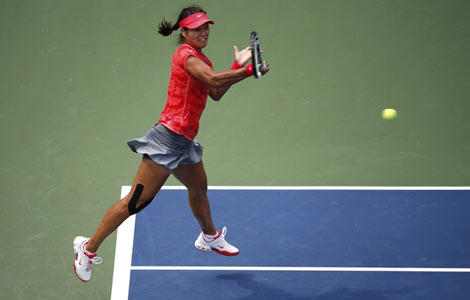
 Li Na advances to 3rd round
Li Na advances to 3rd round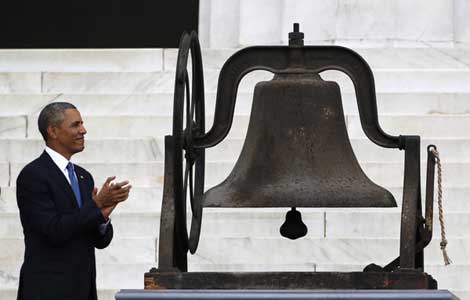
 Obama, marchers mark 50 yrs since King's speech
Obama, marchers mark 50 yrs since King's speech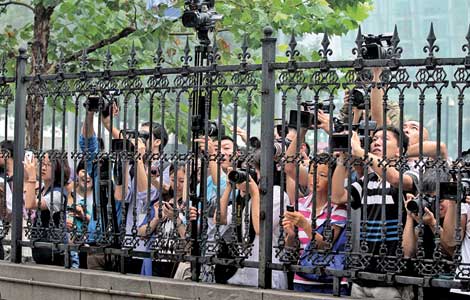
 Singers' son pleads not guilty
Singers' son pleads not guilty
 Rubber duck to float in Beijing
Rubber duck to float in Beijing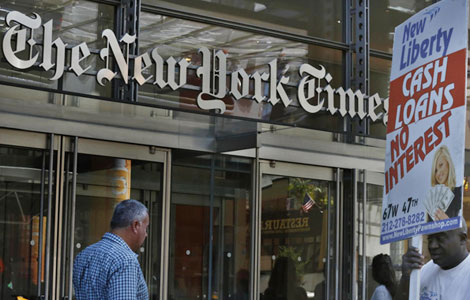
 New York Times, Twitter hacked by Syrian group
New York Times, Twitter hacked by Syrian group
 Five apps to help you 'breathe' in Beijing
Five apps to help you 'breathe' in Beijing
 Wozniacki survives battle with Chinese qualifier
Wozniacki survives battle with Chinese qualifier
Most Viewed
Editor's Picks

|

|

|

|

|

|
Today's Top News
87% of AIDS infections in China through sex
White paper issued on China-Africa cooperation
DC crowds reflect on MLK Jr's dream
China, US officials discuss defense ties
Envoy to seek release of US citizen
China leads the way on multilateral defense co-op
Bond trial program set to expand
China set to lead e-commerce market
US Weekly

|

|

